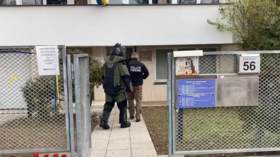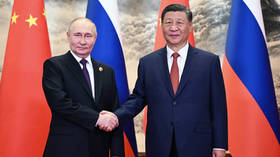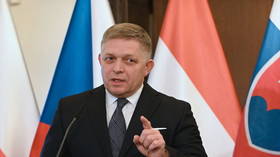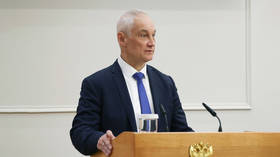Blood-stained package delivered to Ukrainian embassy

A blood-stained package was delivered to the Ukrainian Embassy in Greece on Monday morning, the Ukrainian Foreign Ministry spokesman, Oleg Nikolenko, has said. The news came after a string of similar incidents at Ukrainian missions in other parts of Europe.
“The return address is the same as with other packages that have been delivered to Ukrainian embassies and consulates in the past: a Tesla car dealership in the German city of Sindelfingen,” Nikolenko wrote on Facebook, adding that Greek police have launched an investigation.
An employee of the dealership in southern Germany told local newspaper Stuttgarter Zeitung last week that the establishment was not involved in the incidents.
Nikolenko said there were 33 instances involving threats to Ukrainian missions in 17 countries. He described them as “one attempted terrorist attack, two bomb alerts, a case of vandalism, a case of a written threat, and 28 blood-stained packages.”
The spokesman had previously reported that “suspicious” packages containing animals' eyes had been mailed to Ukrainian missions in the Netherlands, Poland, Hungary, Croatia, Italy, and Austria, while an envelope with a copy of “a critical article about Ukraine” had been delivered to the country’s embassy in the US.
Kiev's Foreign Minister Dmitry Kuleba said in late November that a letter bomb injured a staffer at the Ukrainian Embassy in Madrid, Spain. According to Kuleba, the packages were part of a coordinated intimidation campaign. In an interview with CNN this month, he suggested that Russia could have been behind the packages.
Moscow denied any involvement. Spanish online newspaper El Espanol cited sources in early December as saying that investigators believe “a single individual” was responsible for sending a letter bomb to the Ukrainian embassy, as well as mailing explosive packages to high-ranking Spanish officials.













